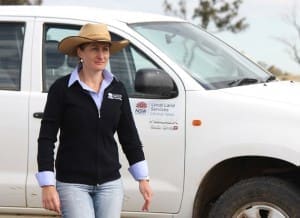MORE than 60 percent of cattle properties across Central Western and Northern NSW showed evidence of exposure to Leptospirosis disease in a recent survey.
Rural health specialists have encouraged beef cattle producers across all susceptible areas to tackle Lepto, which has serious health implications for humans, as well as fertility and productivity impacts in cattle.
The results were found in a NSW Local Land Service (LLS) survey – the first published data examining Lepto risk in cattle on NSW farms for more than 45 years.
Feral pigs, sheep and cattle were studied on more than 100 properties in order to examine the level of Lepto exposure and the risk of contamination. Over a period of 12 months, 1121 samples were collected for the study, with more than 60pc of farms having cattle with evidence of exposure.
Lepto can affect the reproductive performance of cattle and can result in aborted calves in pregnant females. As a zoonotic disease, it can also be transferred to humans, producing severe influenza-like symptoms and in worst-case scenarios, death.
The bacteria can live in contaminated water sources, springs and swampy areas on farms, as well as in the kidneys and reproductive tracts of infected animals. Lepto can result in economic loss for cattle operations due to reduced productivity of livestock, medical expenses and lost time associated with family or employee illness.
District veterinarian for northwest NSW Local Land Services, Dr Jillian Kelly, who coordinated the survey project, said there was a common misconception that Lepto was only a risk in wet, dairying regions of Australia.
“Many producers in our area do not vaccinate for Lepto because of a lack of knowledge about the consequences of the disease, and a perception that our environmental conditions are too dry and extensive to harbour it,” she said.
However, the research clearly demonstrated that exposure to the disease has been found on a high proportion of beef cattle farms in areas of NSW, regardless of rainfall.
“Lepto can be devastating for a beef cattle herd’s reproductive performance, and it’s important for producers in all susceptible areas to be aware of this issue, so they can make informed decisions about the best vaccination programs needed to protect their herd and wider farms,” Dr Kelly said.
“Since the last study of this type in 1968, farming practices and conditions have changed considerably, including higher numbers of animals that can spread Lepto, such as feral pigs. In fact, 45 percent of producers who took part in the research reported that feral pigs were now a ‘high pest burden’ on their farms,” she said.
Amid this feral pig invasion, high numbers of feral pigs are mixing with beef cattle, sharing water sources and contaminating land with effluent. As Lepto can be carried by feral pigs and transferred to cattle, producers are being urged to be more vigilant than ever, when it comes to preventing the disease, by maintaining annual vaccinations.
Dr Kelly reiterated that given the extensive nature of many farming enterprises, the only way to protect beef cattle, farm workers and families from the disease, was to be proactive in preventing it from existing on properties.
Humans are put at risk of contracting Lepto whenever urine, birthing fluids or contaminated water comes into contact with any of their mucous membranes (such as those in the eyes, mouth, nasal passage or even abrasions on hands). Therefore, a number of common activities on beef enterprises pose a high risk for disease transmission. Examples include artificial breeding programs, pregnancy testing in cows, calving cows, washing-out yards and loading cattle.
The survey has overturned the misconception that Lepto is only an issue in wet grazing areas, revealing that rainfall distribution had no impact on the prevalence of exposure to the disease.
Farmers are encouraged to speak to their vet about vaccination against Lepto to minimise the risk and spread of the disease.
There is no human vaccine against Lepto available, but annual vaccination with the Zoetis product, Ultravac 7in1, can prevent the impact and spread of the disease. In addition to protecting against the disease, the vaccine also prevents the shedding of Lepto bacteria in the urine and from the reproductive tract. This ensures protection not only for the vaccinated animal but also for the environment and unvaccinated humans.
- For more information on Ultravac 7in1, go to www.zoetis.com.au

